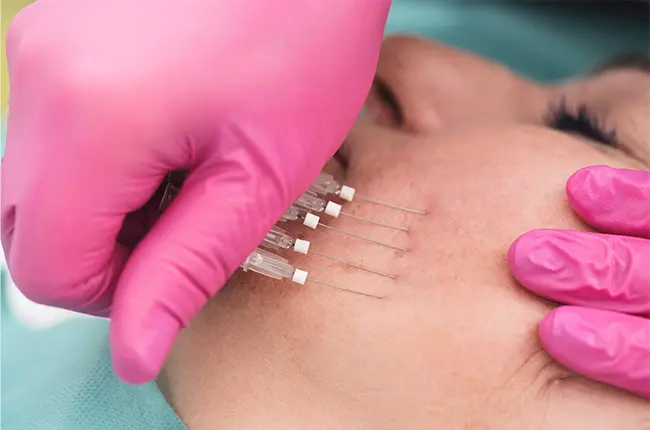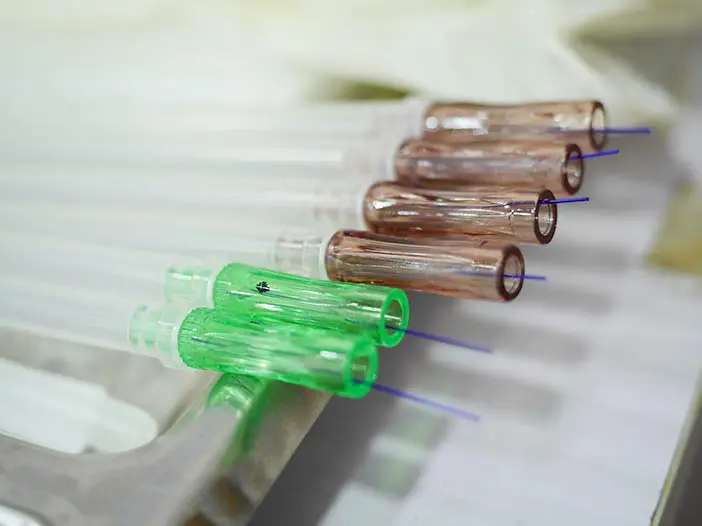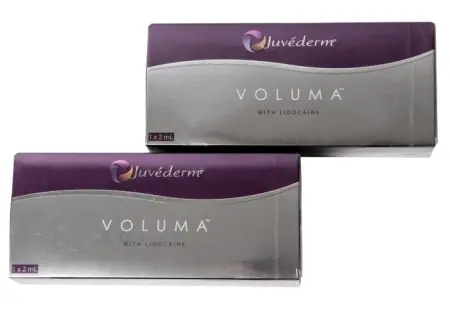What are PDO threads
And Why is Contour not Using Them?

Significant Advancement in Facial Rejuvenation
PDO threads are a much less invasive and inexpensive treatment compared to other alternatives, representing a significant advancement in nonsurgical facial rejuvenation. PDO gets its name from polydioxanone, an absorbable and flexible polymer. These PDO threads have a long way to go before they are up to Contour’s standards, however.
The procedure is meant to stimulate natural collagen production. This reduces the appearance of fine lines and wrinkles over time beyond the treatment. Like many other dermatological treatments, PDO threads create younger looking skin by stimulating the body’s inflammatory healing response. This results in the body producing large quantities of collagen in the PDO threaded areas. 1-15 threads are normally inserted into the anesthetized skin per treatment depending on the patient’s needs.
To Distinct Categoris of PDO Threads
Recovery time is around three days post-procedure. There will be discomfort and limited facial motion immediately after treatment and the patient can only eat soft foods or drink liquids for the next 7-10 days.
The Food and Drug Administration approved PDO threads in 2005 before rescinding it due to their impermanence, inability to correctly absorb or be able to be removed, and complication risks. Then it was re-approved in 2015 for the face, neck and body.

Dr. Jochen's Reasons for not Endorsing PDO Threads
While PDO threads do offer quite a few benefits to the dermatology world, Contour Dermatology does not consider them to be of the same standard as the other treatments we have available. Here are a few reasons why Dr. Jochen and his staff are not using them:
- The threads are a threat to comfort.
The threads may cause significant discomfort to the patient and reported to migrate across the face if used uni-directional or bi-directional. There may also be visible protrusions that have to be cut back if the threads do not properly adhere under the skin. - PDO threads do not continue to work as the skin ages.
Aesthetically, PDO threads do not account for the shift in facial volume with aging, creating excess skin over time. The causes are swelling and inflammation post-treatment. Some patients also reported seeing permanently visible knots and/or dimpling of the skin due to swelling. - They are not permanent.
The PDO thread lift may be less invasive of a treatment, but its effects are temporary and will not be as dramatic as other alternatives such as a facelift. The threads dissolve in roughly six to eight months, meaning that they are temporary and additional treatments are needed in the future. For comparison, the results of a facelift can last almost a decade whereas a PDO thread treatment will only last under a year. - Even the best doctors have had to perform repeat treatments immediately after.
20% of patients participating in a recent study needed a repeat treatment due to improper placement or unattractive results. If extensive scarring has already occurred post-treatment, it is difficult for the doctor to remove the threads. - The list of possible complications is unappealing.
PDO threads also bring a high risk of complications post-treatment such as bruising, swelling, irritation, infection, or suture visibility. More severe complications include damage to blood vessels and facial nerve damage which can lead to facial paralysis.
The risk of many complications combined with the possibility of unsatisfactory results are not up to the high standard Contour Dermatology places on offerings to our patients. Many safer and more effective alternatives are available at Contour such as chemical peels, injectables, lasers, or facelifts.
* Results and your patient experience may vary
















